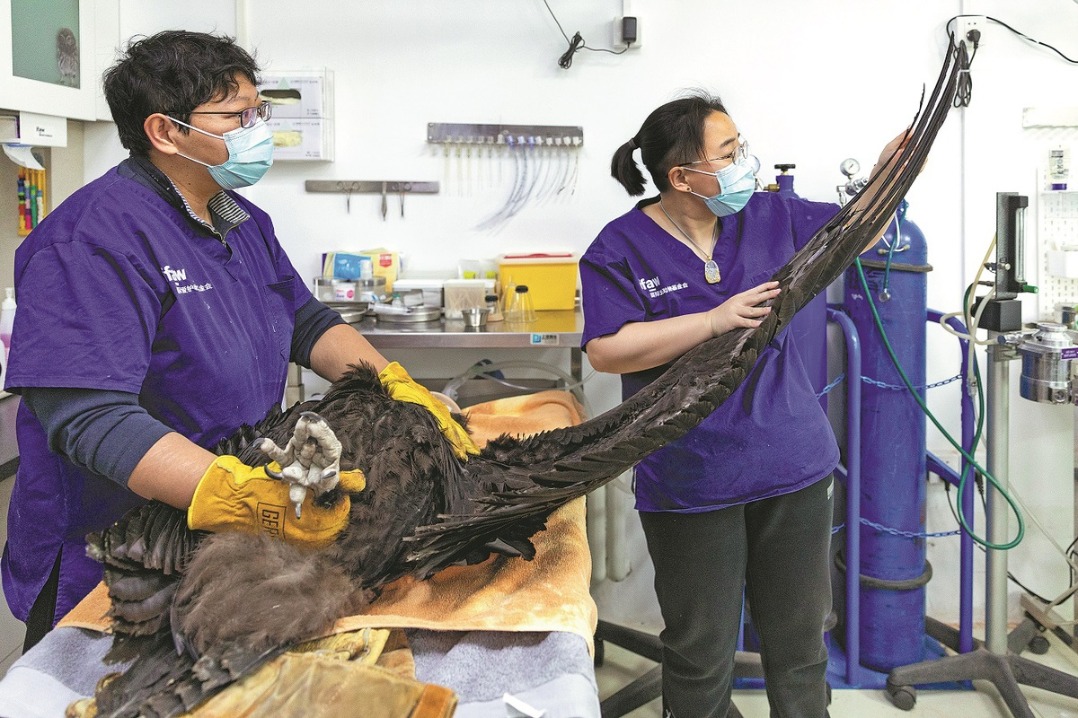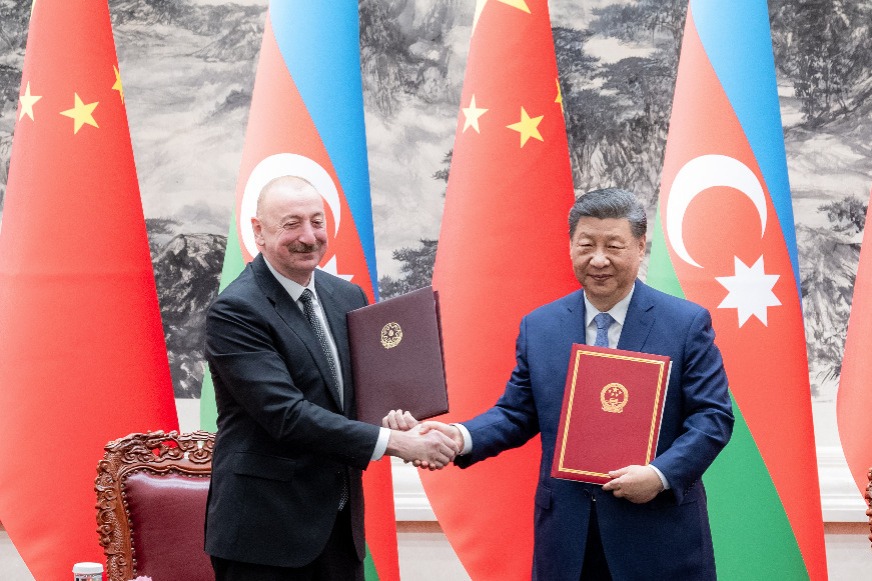Chinese authorities permit trial use of imported calculus bovis in TCM

Chinese authorities have recently permitted 12 pilot regions to use imported calculus bovis — a natural ingredient valued for its detoxifying and calming properties — in the production of traditional Chinese medicine to help ease supply shortages.
In 2002, China banned the use of bovine-derived materials — including bezoar, bile extract, and bone powder from cows and cattle — in traditional TCM production due to the rapid global spread of mad cow disease since 2000.
The easing of the ban lasting over two decades was announced in a notice jointly released by the National Medical Products Administration and the General Administration of Customs last week.
"Calculus bovis that is sourced from countries and regions not subject to import bans related to mad cow disease and that meets the nation's customs quarantine and pharmaceutical quality inspection requirements will be allowed for trial use in TCM production," said the notice.
The 12 pilot regions are Beijing, Tianjin, Shanghai, and the provinces of Hebei, Zhejiang, Jiangxi, Shandong, Hunan, Guangdong, Sichuan and Fujian, as well as the Guangxi Zhuang autonomous region.
The trial program starts immediately and is set to last two years. Based on its outcomes, authorities will gradually expand the use of imported calculus bovis nationwide.
In a statement explaining the move, authorities said that the aim is to "alleviate the shortage of calculus bovis and address inadequate supplies".
"The new measure is expected to expand channels for obtaining calculus bovis, help resolve the deficiency of raw materials faced by manufacturers, play a positive role in meeting market demands and stabilize prices of calculus bovis," they said.
The notice also states that applicants for calculus bovis importation should be located in pilot zones and hold market licenses for TCM drugs containing the ingredient. They should also ensure that imports will be used exclusively for TCM production, and not for resale.
Market license holders should extend their quality management system to overseas production of calculus bovis such as extraction, drying and storage procedures, establish a tracing system for imports and designate separate equipment for manufacturing.
The notice also asks provincial-level drug regulators to strengthen supervision and urge enterprises to set up traceability mechanisms.
Calculus bovis, also known as dried cattle gallstones, is an officially recognized TCM ingredient used for treating conditions like fever-induced coma, stroke, seizures, sore throat and skin infections.
China has heavily relied on imported calculus bovis as a primary source of this medicinal material.
Yu Zhibin, head of the TCM department at China Chamber of Commerce for Import and Export of Medicines and Health Products, said that Brazil is estimated to contribute about half of the global output of calculus bovis, with other major producers including Argentina, Chile, Uruguay, Colombia, Paraguay, the United States, and Australia.
During an interview with Medicine Economic News, a newspaper, Yu said that the move will ease the shortfall of calculus bovis resources and curb its rising prices.
"Consumers are expected to reap benefits as the prices of domestic products that contain calculus bovis such as the angong niuhuang pill (commonly used for cardiovascular problems) and pianzaihuang (a TCM formula often used to help treat liver diseases) will be lowered accordingly," he said, adding that some classic but lesser known TCM prescriptions containing the ingredient will also likely gain popularity again.
- Chinese authorities permit trial use of imported calculus bovis in TCM
- China's domestic travel sees massive growth
- Shenzhou XX crew prepares for launch to Tiangong
- Full text: Joint statement between China and Kenya on creating an inspiring example in the all-weather China-Africa community with a shared future for the new era
- China ready to work with other countries to uphold international trade rules, fairness, justice: Xi
- China, Kenya elevate ties as Xi, Ruto hold talks





































